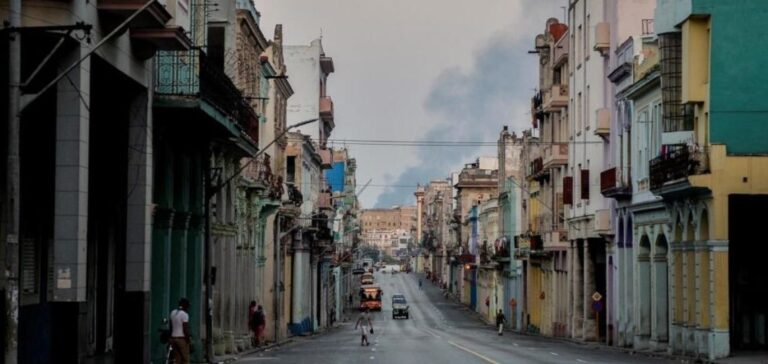Cuba is experiencing a difficult situation, with power cuts affecting the whole island, including Havana. Energy Minister Vicente de la O Levy announced that the disruptions had been ongoing since Friday evening, highlighting the scale of the problem.
The origins of the crisis
The current problems are attributed to the maintenance of the Antonio Güiteras thermoelectric plant, which had already suffered a sudden shutdown in 2022, and to a fuel shortage, following two crises in 2022. This combination exacerbated the situation, leading to prolonged power cuts. The Minister stressed that these power cuts were unavoidable to ensure the necessary maintenance at the plant, which is essential to the island’s electricity production.
The daily impact of power cuts
The consequences of power cuts are far-reaching, affecting food preservation, lighting and even cooking. In some regions, residents are reporting blackouts of more than 10 hours a day, greatly disrupting everyday life. This situation demonstrates Cuba’s dependence on aging and vulnerable energy infrastructures.
Government responses to the crisis
Faced with this emergency, the Cuban government has promised a gradual restoration of electricity. However, the Minister warned that the situation would remain tense, mainly due to the financial challenges of acquiring oil. Despite these promises, public confidence in a rapid resolution is waning, underlining the need for a long-term strategy.
Looking for sustainable solutions
This crisis highlights the need for Cuba to rethink its energy infrastructure and explore sustainable alternatives. Investing in renewable energies and improving the efficiency of existing power plants could be crucial steps in preventing future crises. The current situation could ultimately serve as a catalyst for an energy transition on the island.
Cuba’s current energy crisis is an urgent call to action to modernize the country’s energy infrastructure and diversify its energy sources. The government’s efforts to stabilize the grid are essential, but strategic thinking about Cuba’s energy future is needed to ensure a lasting solution.






















